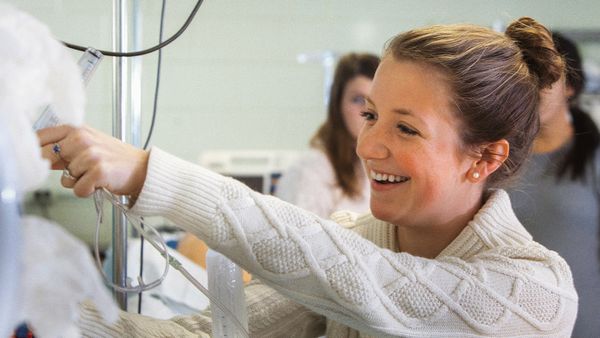Have you wondered what it would be like to see a cloned version of yourself? Your dreams may come true. Perhaps maybe even in the next few years... Or months.
Xu Xiaochun, the Chinese scientist (and CEO of Boyalife Group) who led the creation of the world’s first cloning factory, says that he has already got the technology and is ready to take on this hotly debated task. Boyalife Group, a Chinese cloning company, is partnering with Sooam Biotech Research Foundation to build an animal cloning facility. This facility intends to clone humans as well.
Xu told AFP that his only concern about human cloning is that society doesn’t agree with it.
The cloning facility is set to open within the next few months in Tianjin. They plan on starting off cloning 100,000 cattle embryos a year and eventually increasing that number to 1 million cattle embryos a year. They also plan on cloning sniffer dogs, pet dogs, police dogs, beef cattle, and racehorses.
The purpose of the factory is to clone cattle for consumption, as a result of China’s beef shortage. Right now the company is not engaging in any human cloning activities, but they will once it becomes socially acceptable.
Xu pointed out that societal values can change as it has for homosexuality and that in the future humans might have more choices about reproduction. He said, “Maybe in the future you have three choices instead of one...You either have fifty-fifty, or you have a choice of having the genetics 100 percent from Daddy or 100 percent from Mummy. This is only a choice.”
The Pros:
- It could completely eradicate all defective genes. Currently, genetic diseases are not a leading killer of people. However, it is quite possible that in the future this could change. As humans continue to reproduce, there is an increase in damage to their DNA lines, creating mutated genes which could be eliminated by cloning healthy human cells.
- Cloning human cells can lower recovery time. So athletes who may have torn their ACLs or people who may become paralyzed in traffic incidents may be able to recover sooner, or for that matter, become fully healed.
- The issue of infertility could be resolved. Despite there being many types of treatments for infertility, most are still ineffective, with only a small percentage being successful. With human cloning, infertile couples might be able to reproduce, reversing the issue of infertility.
- Cancer may be cured. Perhaps the biggest pro to human cloning is that we may be able to cure cancer. This could hypothetically be achieved by switching cells on and off through cloning. Currently, scientists do not know how cells differentiate into specific types of tissues. They also don’t understand how cancerous cells lose their ability to differentiate. As a result, cloning may become an integral part of finding the cure for cancer and determining how cells differentiate or lose their ability to differentiate.
The Cons:
- Premature death can occur. Since older cells would probably be used to create human clones, it is a likely situation that the growing embryos would adopt this age, which may lead to premature death. This would defeat the purpose of human cloning since many hope to achieve longevity by cloning humans.
- Human cloning may lead to greater division among people. This is because clones who are discriminated against and are not treated as human beings can lead to social unrest and division. Since there is already a racially and socially divided gap in the world today, some people feel that human cloning will result in more divisions resulting in more harm.
- Religion is a major deterrent in the human cloning process. Some people who have strong religious convictions oppose the process of cloning humans since they feel it would result in man becoming the creator, thereby replacing the role of God. As a result, many opinions on human cloning are religious-based rather than scientifically based. This may prevent human cloning from happening for years to come. (From a religious perspective, however, this would prevent the immoral process of human cloning).
- It is immoral. Some people feel that cloning humans is flat out wrong and unconscionable. They feel that many pregnancies would be damaged to achieve just a single clone of an individual and that it’s just not worth the risk. Also, evidence suggests that clones may have defects that can lead to premature ageing and death. Bringing children into this world by cloning who may be affected by these problems, some argue, is unethical.
While the animal cloning factory is on its way, it may take a while, if ever, before you are talking to your very own replica.





















